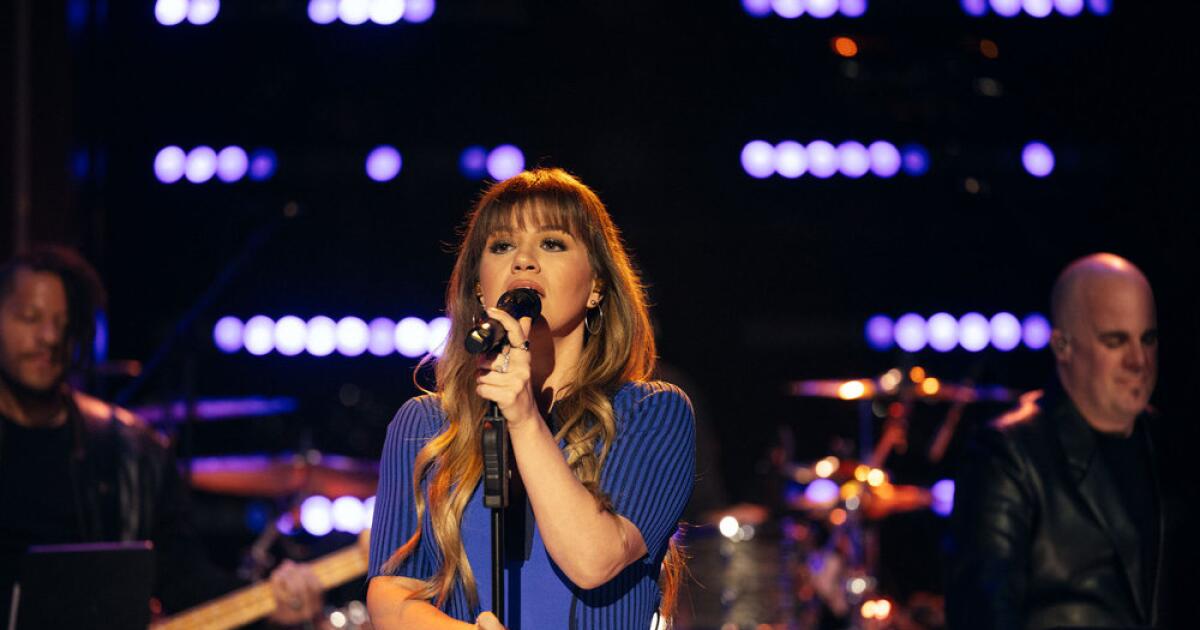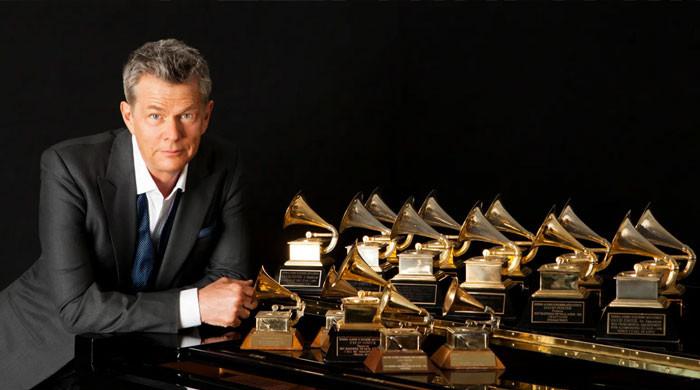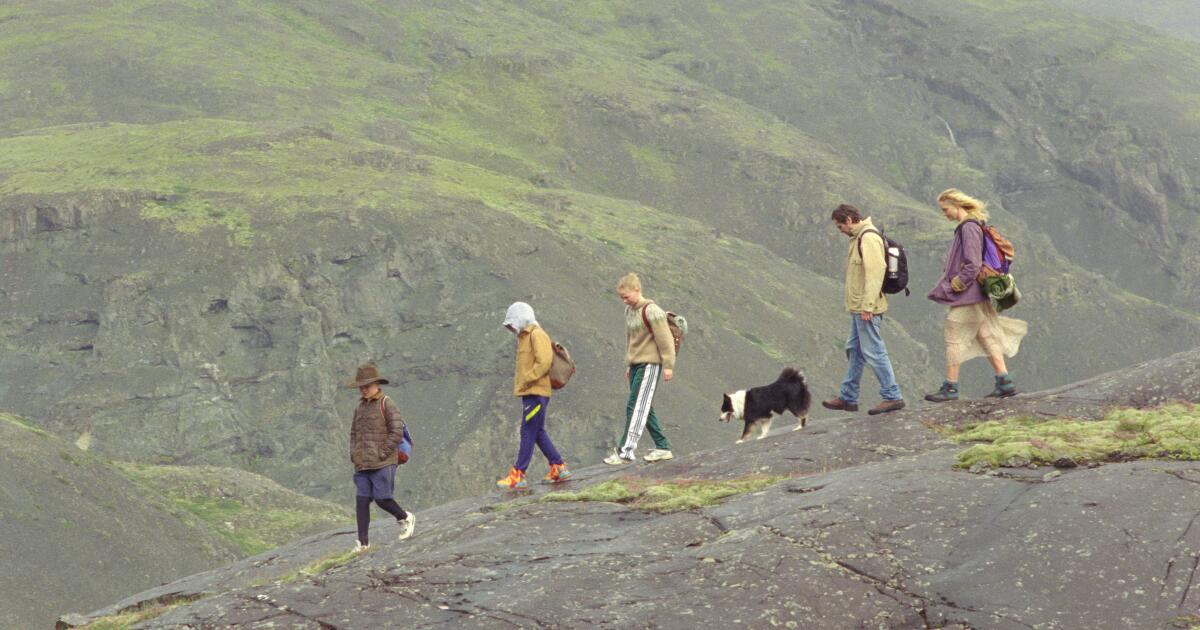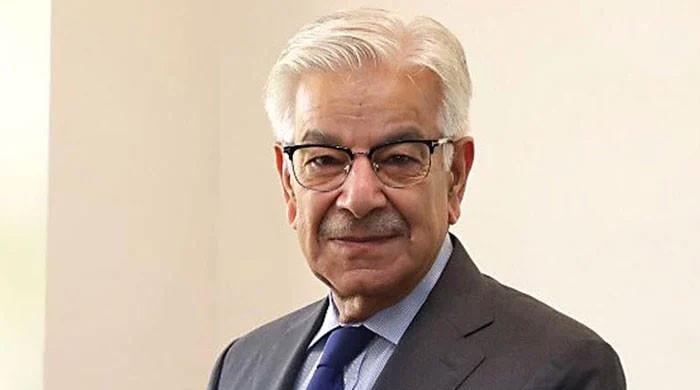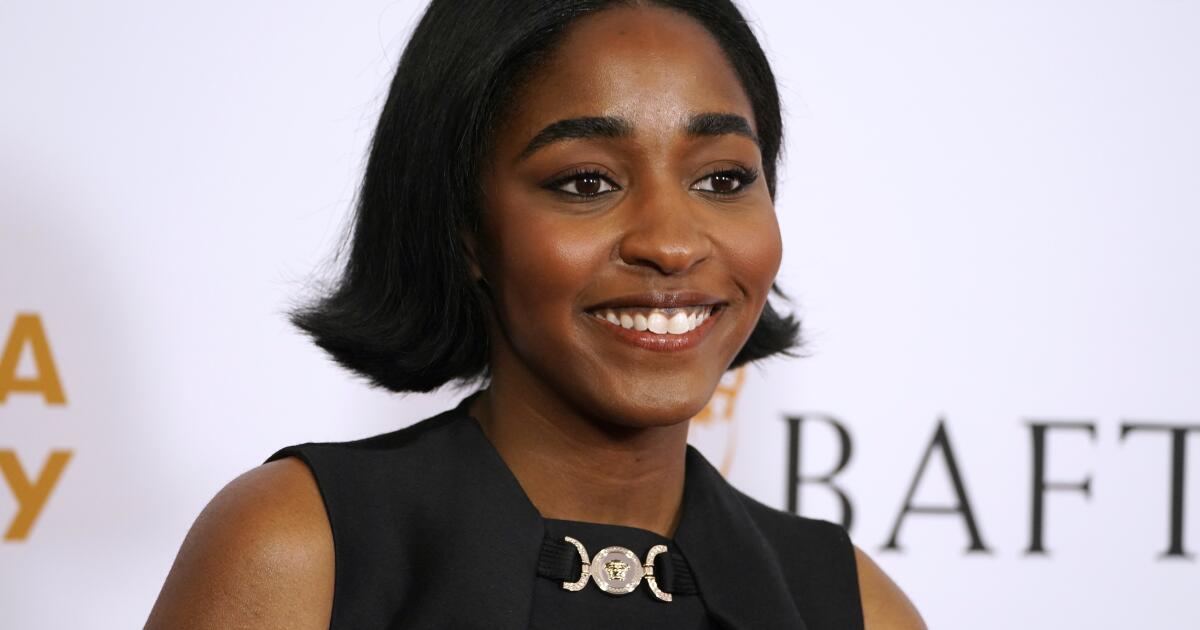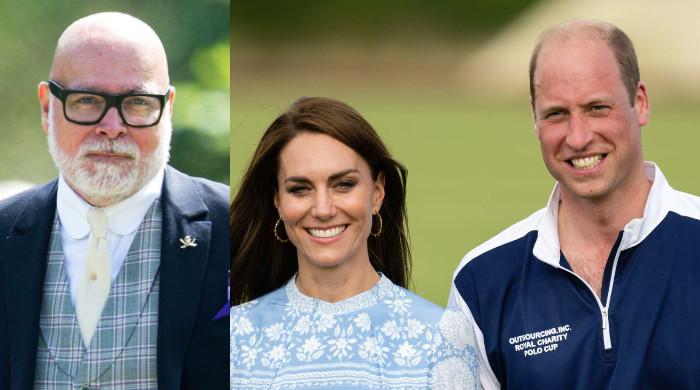A few years ago, Molly Lewis walked into Dr. Dre's recording studio and accidentally roasted him.
Lewis, a Los Angeles-raised musician and songwriter, is known for her otherworldly whistles. She had cultivated it for years among the Los Angeles avant-garde, and one of Dre's collaborators found her and brought her to record a song of hers.
She recalled Dre whistling a part to guide her, and Lewis gently mocked him: “I said, 'I think you should keep producing,' and everyone in the room started dying of laughter, including Dre,” she recalled. “I didn't think it was a good joke, but once he left the room, they said, 'Do you realize that's a line from Ice Cube's song about Dre?'
“Everyone was shocked because I had referenced that, but it was totally unintentional!” Lewis insisted, very Larry David style. “It was an unintentional insult!”
Lewis’ extraordinary talent in a very specific field has taken her to unlikely places, from Dr. Dre’s studio to Billie Eilish’s cover on the “Barbie” soundtrack. It all culminated in “On the Lips,” her debut LP in February.
“Lips” is a sly nod to jazz and mid-century exotica, ambient music that is more soulful than you might expect. It will likely put her in front of much larger audiences who don't know what her ubiquitous but unexpected instrument is capable of.
“When people ask me what I do, I say I'm a musician and then I get ready because we have to have an hour-long conversation about whistling,” Lewis said. “Most people don't even consider it an instrument. But I'm so used to this being my career that I've forgotten that a lot of people have never heard of this before.”
In late February, Lewis met for martinis at the revolving rooftop bar of the Westin Bonaventure in downtown Los Angeles. famous for its 360-degree views and elegant concrete brutalism.
Lewis loves the places preserved in amber in Los Angeles. She grew up here (her father, Mark Lewis, is an Emmy-winning documentary filmmaker) and fell in love with places like the Dresden Room and Musso & Frank, where she became close friends with bartender Sonny Donato (he inspired a song, “Sonny,” in their new LP.)
“The waiters there could smell the fear of a newbie,” Lewis laughed. “But I love the history of Los Angeles like that. Compared to Europe, 100 years isn't that long, but Musso is as old as Los Angeles is. Every time you go there, some waiter says, 'Oh, that's Lauren Bacall's favorite seat,' or 'That was Charlie Chaplin's booth.'”
A few nights before he joined the history of the music that passed through the Troubadour. His titular ensemble showcased his whistling as an elegant, virtuoso instrument, punctuated by costume changes and Catskills-conscious trickery. She blanked a little when her magical lip gloss granted her whistling abilities to a random member of the crowd. (He was a plant.) As she introduced her song “Miracle Fruit,” she dryly noted, “This is a protest song, so you could call me…whistleblower,” amid grateful moans.
Molly Lewis says, “I had this particular skill set that I adapted to.”
(Jason Armond/Los Angeles Times)
Lewis said he came to whistle as a side door to the composition. “Music was a big part of my life, but I didn't feel like a musician,” he said. “I had this particular skill set that I adapted to, where I could engage with music in a way that I couldn't with any other instrument I tried.”
She adored Dresden Room residents Marty and Elayne, and longed for a similarly classy intimacy at shows. “My big idea was that when he (Ennio Morricone collaborator) Alessandro Alessandroni died, he was my whistling hero,” Lewis said. “Zebulon had just opened. Many people came; “I didn't know how many people liked this music, but I also realized that people had never seen this music performed live on this very specific instrument before.”
With one ear toward Morricone-style melodrama and another toward underground experiments (she's one of the artists who greet you at Dublab's new installation at LAX), she cultivated an unusually fervent fandom by word of mouth. Her stage performance, with different intentions, could have been a concert in a Las Vegas lounge, but instead she resonated in the Los Angeles art-rock scene. At Zebulon, she hosted a long-running series, “Cafe Molly,” which brought her into the orbits of collaborators such as Karen O, Caroline Polachek, Mac DeMarco and John C. Reilly.
“It's pretty weird what he's doing, there aren't many whistlers in the Rolodex you can call,” said Thomas Brenneck, a longtime Lewis collaborator who produced “On the Lips.” “I remember the first time I saw her in Zebulon, it was very otherworldly, but her stage personality is incredibly charming. She is performance art, but she also makes jokes.”
News of her talent reached producer Mark Ronson, who flew her to New York to record an alternative version of Billie Eilish and Finneas' Grammy-winning “What Was I Made For?” on the “Barbie” soundtrack. “Mark and Andrew (Wyatt) had this very '30s orchestral arrangement, and I just had to whistle this melody that was already so beautiful,” Lewis said. “A total dream to play on something so evocative that was such an important moment in pop culture.”

Director Greta Gerwig was so enthralled with Lewis's music that her family hired her to whistle at Gerwig's 40th birthday. “She's done so much and she's such a humble, lovely lady,” Lewis said. But perhaps the most significant moment in her career as a whistler came when Donato, an old friend of “Twin Peaks” actor Harry Dean Stanton, asked her to perform for Stanton in hospice in 2017.
“I whistled some of his favorite songs, which Sonny told me were 'Danny Boy' and 'Just a Closer Walk With Thee.' I was like, 'Son, geez, do you like some happier songs?' Lewis said. “But he was still the same, he was asking the nurse for a cigarette. When we left, Sonny and I hugged each other in the elevator and cried. It is an honor for me to have known him even in some way.”
Lewis has released a few EPs through the acclaimed independent label Jagjaguwar (home of Bon Iver and Angel Olsen), but with “Lips” he has a definitive statement of his rare and delicious artistry. Tracks like “Lounge Lizard” and “Crushed Velvet” have the gentle class of Chet Baker (one of Lewis's heroes) and feel as inviting as a sunken conversation spot in the living room. Some, like a sassy cover of Jeanette's “Porque Te Vas,” are impeccably elegant, others like “The Crying Game” are relentlessly melancholic.
He's assembled a dynamic, bossa nova-infused band to develop his productions, but it's all in service of his whistling acrobatics, which he deploys with effortless charm.
“I would love it if someone would want to close their eyes and enjoy it, but I would also love it if someone would want to put it at a dinner party and have music playing in the background,” Lewis said. “I'm not valuable that way.”
“It probably won't top the Billboard Hot 100,” Brenneck said of “On the Lips.” “But it will catch the attention of a lot of music supervisors. I would love if this album could make him do more musical work or do interesting performances. His art really deserves it.”
“Lips” arrives at an unusually powerful time for avant-garde wind instruments. André 3000's “New Blue Sun” became an unexpected hit for its wild, woolly flute experiments (and produced the longest song to reach the Billboard Hot 100, “I Swear, I Really Wanted To Make a 'Rap' Album but This Is Literally the How the Wind Gone This Time”). Shabaka, the acclaimed British saxophonist behind Sons of Kemet and The Comet Is Coming, also has a flute album, “Perceive Its Beauty, Acknowledge Its Grace,” due out in April.
Lewis was hilariously skeptical about wind instruments making a breakthrough. “I'm very far removed from what's cool in music, and obviously I'm not making music for the purpose of being cool,” he said, laughing. “But yes, I hope wind instruments will be in fashion by 2024.”
If whistling is this year's new flute, Los Angeles will have to swoon from afar. Lewis will move to New York in March, a last-minute change of scenery he felt was necessary after a decade in Los Angeles.
“I've been obsessed with Los Angeles, it's influenced everything I've done,” Lewis said. “But I've been cheating with New York the last few years. I think it's nice to be in a new place. “I think I finally started to get tired of cars.”
As the Bonaventure bar took another tour of the skyscrapers of downtown Los Angeles, he admitted that it will be difficult to leave the city that allowed his strange talent to flourish. “It seems a little crazy to me to want to leave Los Angeles, but I think we need a break,” she said. “Maybe. I'll probably come back.”


